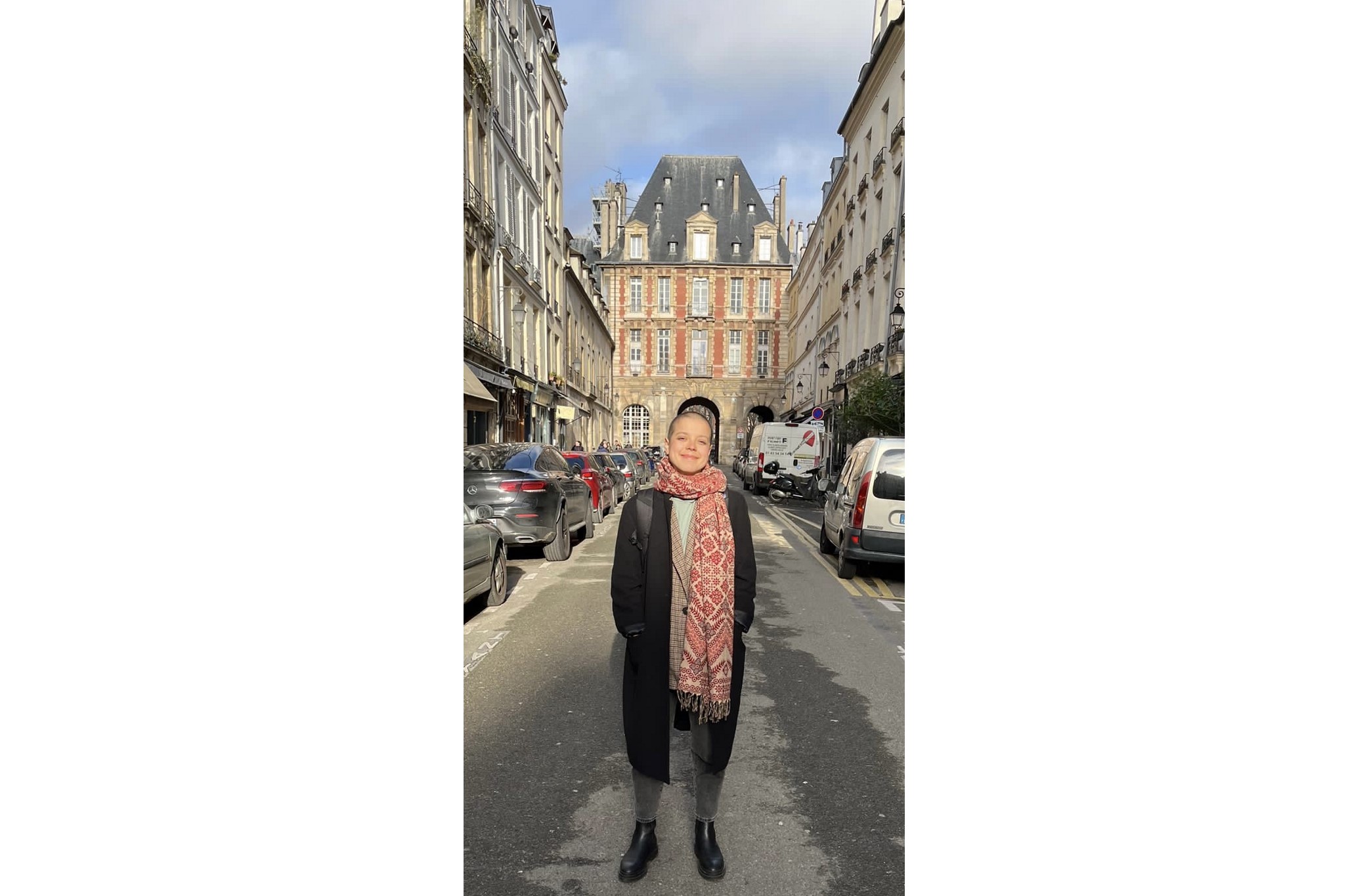
Julie Flandreau ('23), who majored in Comparative Literature, traveled to Paris to study 19th century French translations of Shakespeare under the mentorship of Zachary Lesser (English Department). This research was supported by the College Alumni Society Undergraduate Research Grant.
I began this research project with a kind of shapeless curiosity for the subject matter (a nineteenth century French translation of Shakespeare). I say “shapeless” because everything about the topic interested me. From this broad interest, I had a hard time figuring out what my “thesis” should or could be: what did I want to say, prove, discover about it? What I wanted was to understand the conditions of production of the translation and communicate this knowledge to those who may be interested. Until I visited the archives, a wariness of making false, uninformed, or repetitive claims kept me from knowing where I was really going with the project.
When I got to the archives, my original questions or hypotheses were majorly re-worked by what I discovered, as well as by what I did not find. This experience was critical to my research project. I realized that what interested me the most was precisely the conditions under which “producing knowledge” about the translation was possible: what kind of evidence had survived the years and what kinds of assumptions about the political, literary, historical context had guided my investigation? The translation became a case study for a theoretical reflection about archives, myth, and storytelling. When returning home, the task was to figure out how to cogently articulate this reflection. It was a very rewarding process, which helped me become a better writer, a clearer thinker, and allowed me to practice firsthand an archival research methodology (the technical skills of taking adequate, referenced photographs, sorting digital files, compiling a functional, archival inventory, transcribing and translating manuscript documents etc.).
Since finishing my research on French Translations of Shakespeare, I worked as a Staff Reporter for The Spirit News, a Philadelphia newspaper, and I am currently working as a journalist for a documentary production company based in Paris. Together with my co-directors, I received a grant to fund an independent documentary on mass incarceration in PA, which should be released in the Spring. I will be coming back to Philadelphia in April to properly finish and launch this project, as well as to take up a position as Associate Editor for The Spirit. I can’t stress enough how the research I was able to conduct during college contributed to set me on my current path. On the one hand, it gave me the opportunity to have vivid, practical engagement with archives and archival methodology - with finding ways to make an archive “speak”. Within both my professional work as a journalist, and my independent work as a documentary filmmaker, this experience has been priceless, and I draw upon it daily. A piece of advice to undergrads, however unglamorous, would be to note the fact that finding grants and sources of financial support for research (especially research done with a good deal of passion) is an important part of conducting the work of one’s dreams. Another would simply be to embrace the chaos of truth, which is the chaos of research, which is the chaos of life. - Julie Flandreau
Interested in reading more first-hand accounts about undergraduate research? Check out the other experiences featured on our Student News Page and Social Media!
Related Articles
Research is About Continual Growth
04/22/2024
Heejoon Shin ('26), a Chemistry major, developed contrast agents to improve the use of biosensor for cancer detection under the mentorship of Dr. Ivan Dmochowski (Department of Chemistry). The research was supported by the Penn Undergraduate…
Two Penn students awarded a 2024 Paul & Daisy Soros Fellowship for New Americans
04/17/2024
Min Jae Kim is pursuing an M.D./Ph.D. in the Perelman School of Medicine, and Zijian (William) Niu is a fourth-year in the College of Arts and Sciences.
Penn team of four undergrads awarded the Davis Projects for Peace grant
04/15/2024
The College of Arts and Sciences students lead a community health care project in Philadelphia.